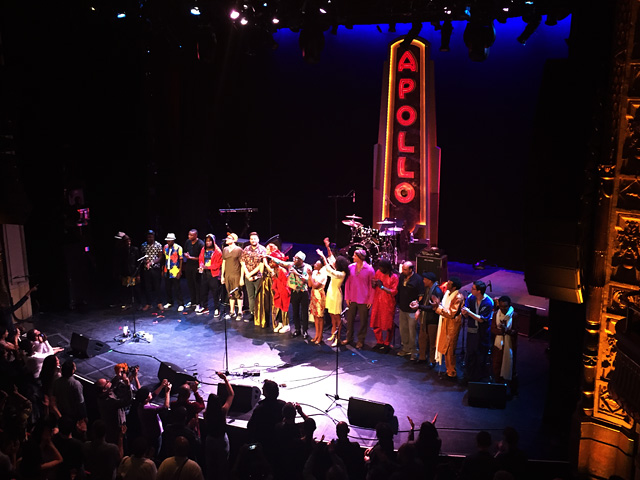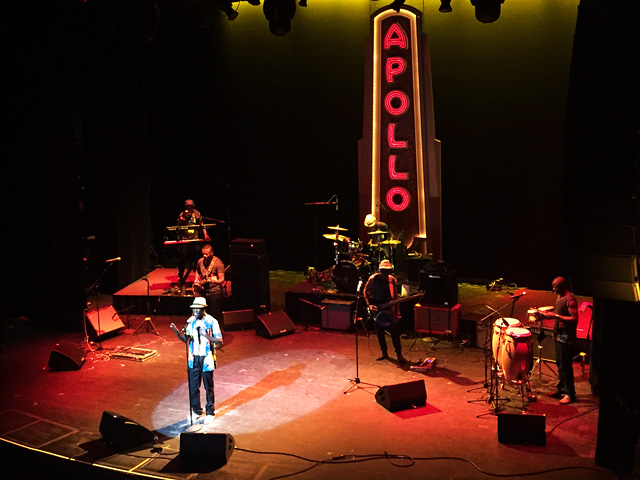Africa Now! At The Apollo

By Jessica Sutherland
Six-man band Mokoomba electrified the stage of the Apollo with infectious rhythms and dance at the fourth annual Africa Now! music festival in March. The performers from Zimbabwe had the audience dancing in the aisles with afro-fusion jams they describe as a “unique blend of Tonga and Luvale traditional rhythms fused with dashes of funk, ska and soukous.”
Africa Now!, in partnership with the World Music Institute, holds an annual festival that celebrates the African diaspora with performances by African artists. The show was hosted by Sierra Leone’s Sahr Ngaujah with resident DJ Underdog playing afrobeat music, popular in the African scene.
The two headliners were JoJo Abot from Ghana and Bombino from Niger. JoJo had a contemporary R&B hipster appeal to her, yet she seemed raw and traditional at the same time. Gold face paint accentuated her bold features and her bright, wide eyes that complemented the raw emotion in her music– which addresses women’s rights.
The Apollo was packed that night with a lively, mostly white, audience. Alexandra Pryjma, 34, said she looks forward to the event each year. She said she is drawn to the event because of the rich culture. “I don’t always understand, but it’s beautiful to watch,” she said.

Omara “Bombino” Moctar, the most anticipated act of the night, is an internationally acclaimed Tuareg guitarist and singer-songwriter from Agadez, Niger. His music frequently addresses Tuareg geopolitical concerns and is sung in the Tuareg language of Tamasheq. (The Tuareg are a nomadic Berber people who live primarily in Northwest Africa.)
Bombino’s American drummer Corey Wilheim almost stole the show. At times he appeared to be in a trance. The audience responded to his exuberant performance with a standing ovation. In an interview with SFGATE, Bombino said “he is the best drummer I’ve ever played with.”
The Apollo theater is known for its role in helping to launch the careers of some of the greatest African America legends in music, such as Michael Jackson (in the Jackson five) Stevie Wonder, and James Brown. Named named after the Greek god of music, it was once a white-only restricted burlesque theater. It later became the first theater in NYC to welcome black performers on stage. It’s since became a household name and a place of opportunity, connecting artists from all walks of life who share their music and culture with the rest of the world to teach, inspire, and unite.
Saved under Culture, Entertainment, Featured Slide
